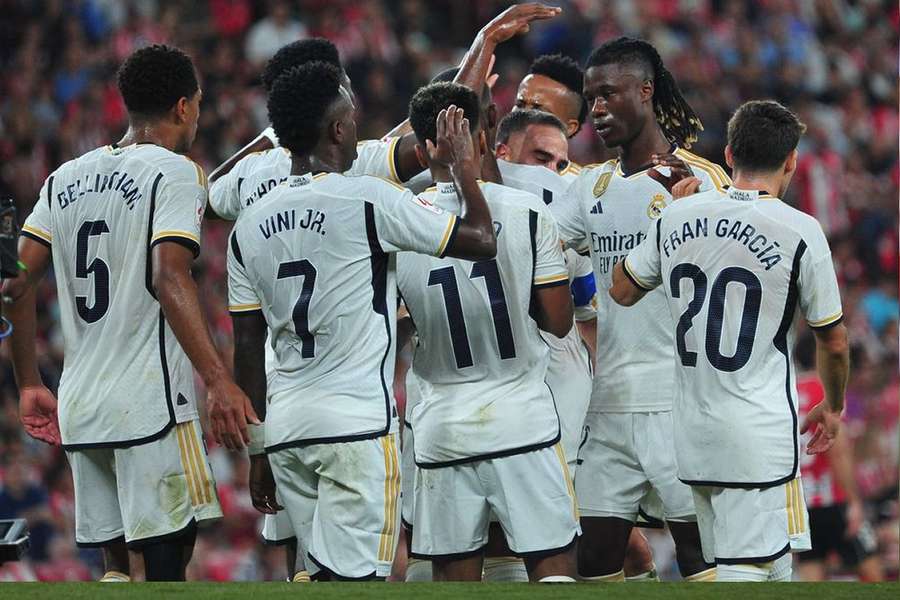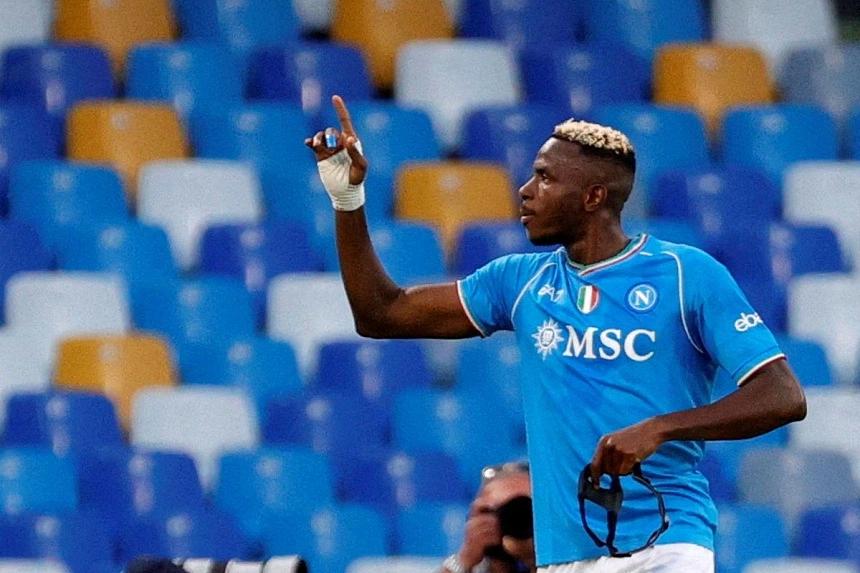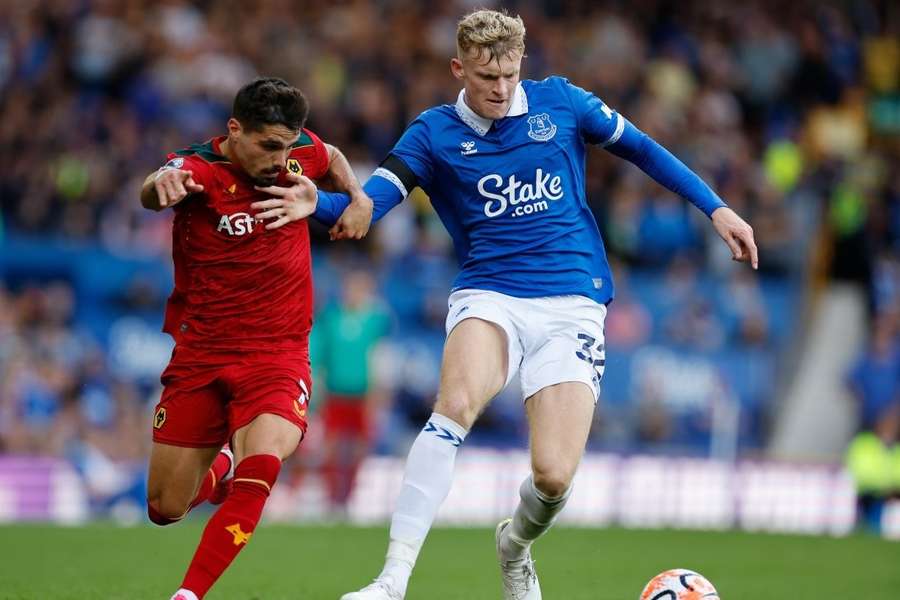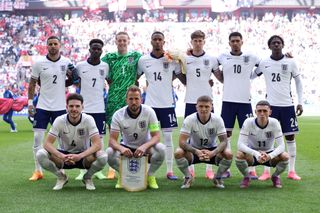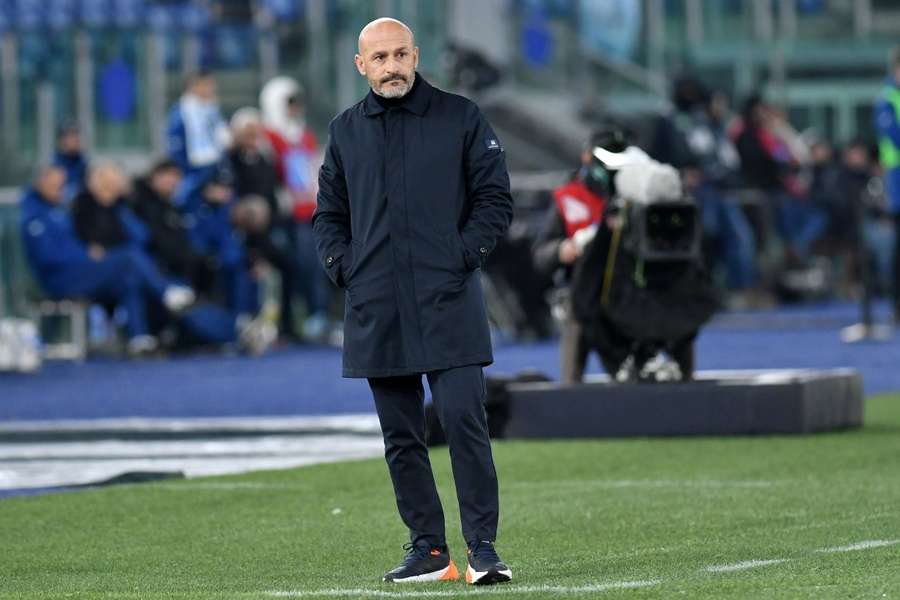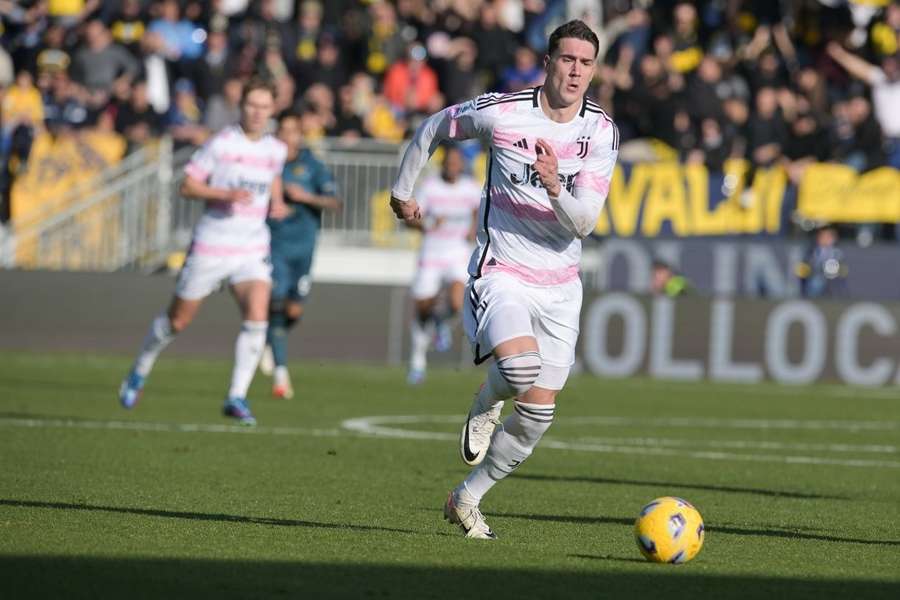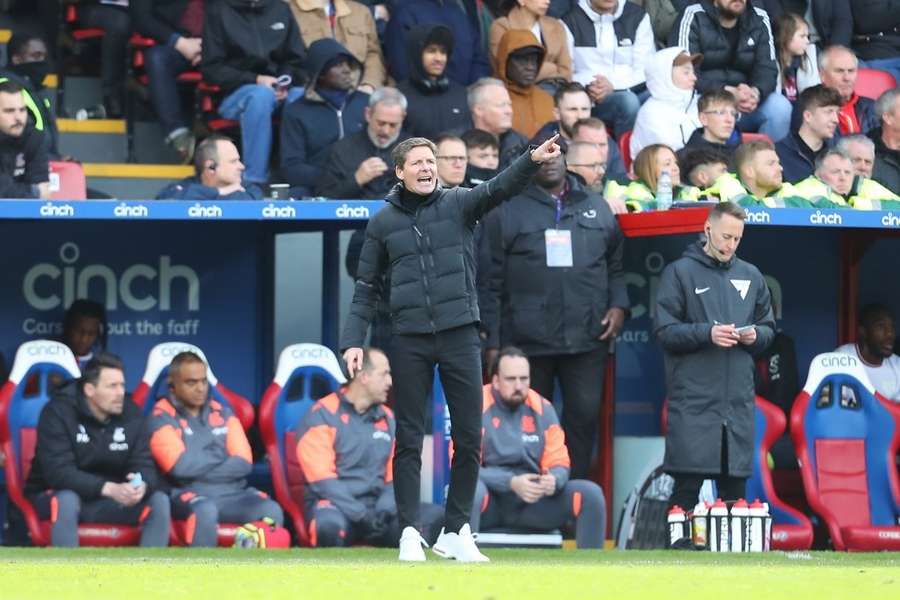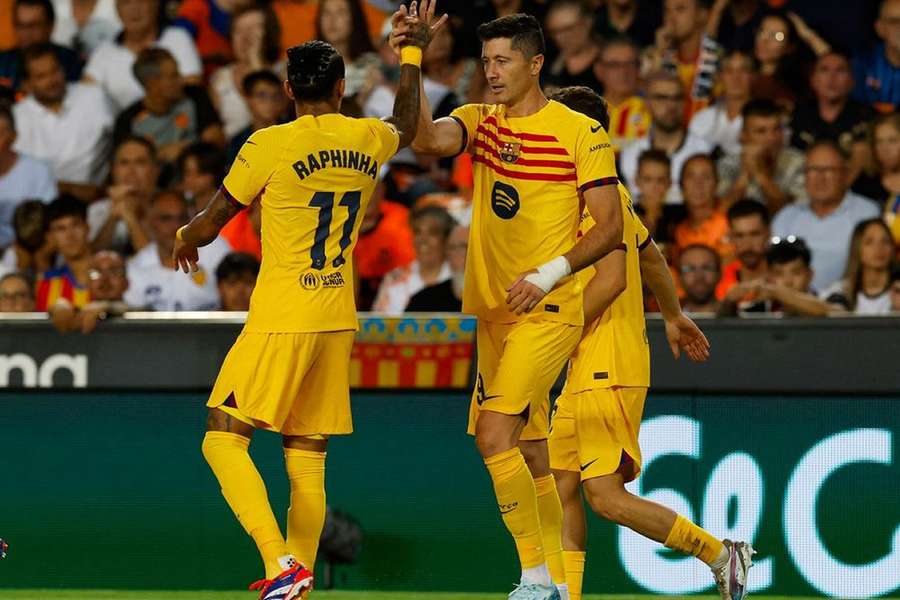Explaining the 'No to racism' gesture in soccer: FIFA's cross-arm signal adopted by La Liga in Spain
Over the past decade, global football has placed a significant emphasis on developing and implementing effective anti-racism protocols to combat discrimination within the sport.
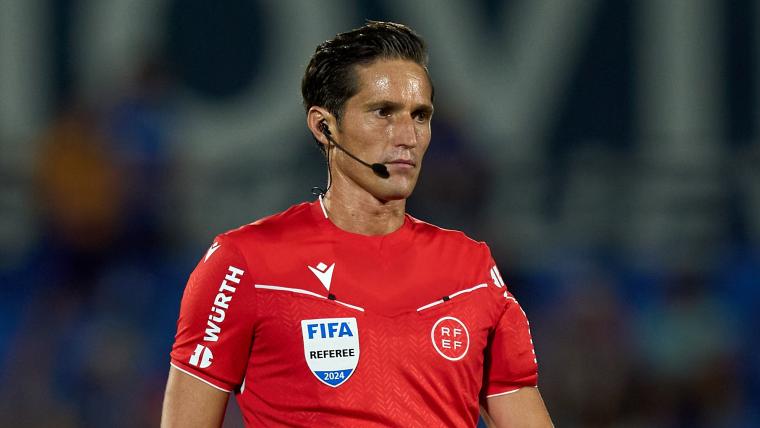
While FIFA has championed its three-step process of pause, halt, and abandon a match affected by racial abuse, critics argue that in practice this has not achieved the desired effect.
One of the most troubled regions plagued by instances of such abuse is the Spanish league, where a number of black players have reported being subjected to chants, insults, and other targeted abuse across multiple spheres, including at matches, on social media, and throughout daily life.
Real Madrid star Vinicius Junior has been vocal in his demands for authorities to stamp out racism, even calling for Spain to be stripped of hosting rights for the 2030 FIFA World Cup if the problem is not tackled sufficiently.
Perhaps they have heeded those calls at last. The Spanish federation, along with La Liga, has become the first to adopt a new anti-racism procedure that FIFA hopes will become standard across all leagues and competitions around the globe.
MORE: All the latest soccer news | Barcelona news | Real Madrid news
What is FIFA's 'no racism' cross-arm gesture?FIFA has implemented a new gesture for referees and players to signal that racial abuse is occurring during a game.
Per the new guidelines from soccer's governing body, players will have the ability to cross their arms at the wrists in an X to signal to the referee and viewers of an instance of racist abuse.
Should this occur, the referee will immediately begin the three-step process already in place to handle racial abuse. The first of the three steps is to pause the game until the abuse ends, and should it not, the next two steps of suspending the match and abandoning the match will be taken in appropriate measure.
"By crossing their hands at the wrists, players can signal directly to the referee that they are being targeted by racist abuse, prompting the referee to start the anti-discrimination three-step procedure," FIFA explained in its anti-discrimination announcement.
Additionally, if the referee notices or identifies racial abuse themselves, they can also use the gesture to signal that the three-step process is being adopted.
When and how is the 'no racism' gesture used?In leagues where the guidelines are adopted, players are able to utilise this gesture when being targeted by racial abuse.
The crossed arms will signal to referees that they are the target of abuse and allow the official to take appropriate action.
Referees themselves can also use the gesture to signal that the match is being affected by racist insults and that the three-step protocol has been initiated.
While nothing fundamental is changing with this guideline, what it will hopefully do is to allow for greater transparency for viewers, which in turn will, theoretically, force referees to take more immediate action when abuse occurs.
As it stands, discussions about racist abuse on the pitch between players and officials are often difficult to identify in the moment, and thus referees can waver in their ability to implement the three-step process. Under this guideline, everyone will immediately know a player has been abused, which will put pressure on the referee to react promptly.
When are La Liga implementing the 'no racism' gesture?No timeline for implementation was given by the Royal Spanish Football Federation (RFEF), so by the language used in the official release, it would appear that La Liga will begin implementing this part of the anti-racism procedures immediately.
"The Royal Spanish Football Federation, together with La Liga, will incorporate the gesture for racist incidents that was approved at the last FIFA Congress held in Bangkok into the Protocol for Action on Public Incidents," said the RFEF in a statement. "An agreement was adopted unanimously to continue fighting racism together and efficiently."
Spain has witnessed a number of instances of racial abuse at football matches, with high-profile incidents both during and around La Liga matches. Real Madrid forward Vinicius Jr. has often been the target of racial abuse and has been an outspoken critic of what he considers to be the country's systemic issue with racism. Most notably, Vinicius posited that Spain should lose the right to host the 2030 FIFA World Cup if the problem isn't stamped out.
Steps have been taken towards reducing the problem. In June 2024, three men were jailed for racially abusing Vinicius in a match between Madrid and Valencia at Mestalla in May 2023.
The Brazilian posted on X: "Many people asked me to ignore it, others said that my fight was in vain and that I should just 'play football'. But, as I've always said, I'm not a victim of racism. I am an executioner of racists. This first criminal conviction in Spanish history is not for me. It's for all black people.
"Let the other racists be afraid, ashamed and hide in the shadows. Otherwise, I'll be here to call them out. Thank you to LaLiga and Real Madrid for helping to bring about this historic condemnation. There's more to come."
Do any other leagues use the 'no racism' gesture?Currently, no other top leagues use the crossed-arms gesture, but La Liga will not be the first worldwide competition to implement the process.
The gesture is in place at the 2024 FIFA U-20 Women's World Cup, which is currently in action in Colombia.
RELATED STORIES
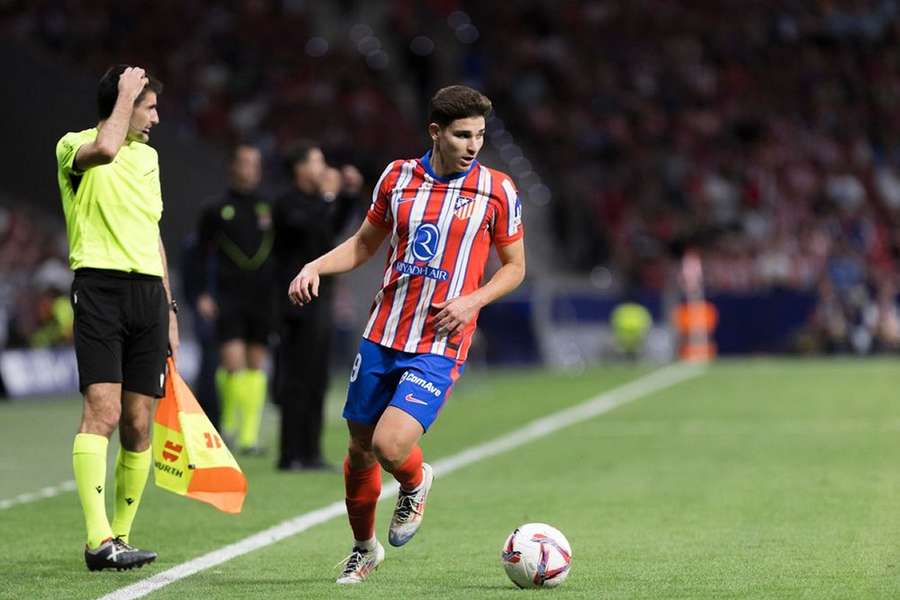
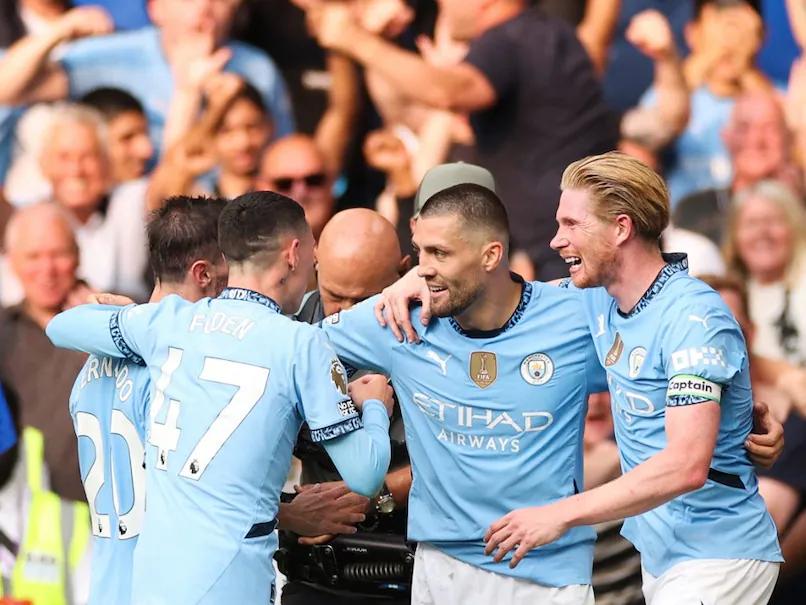

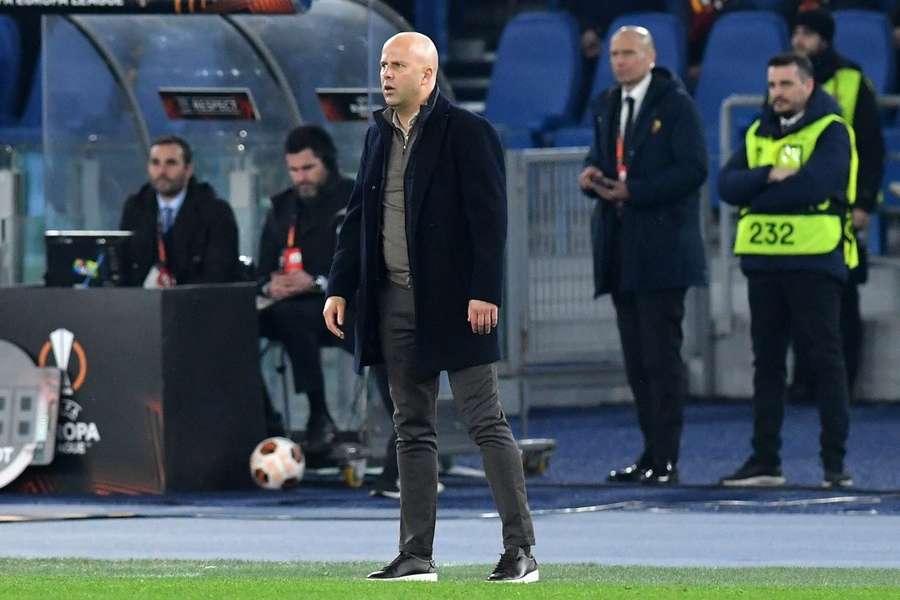
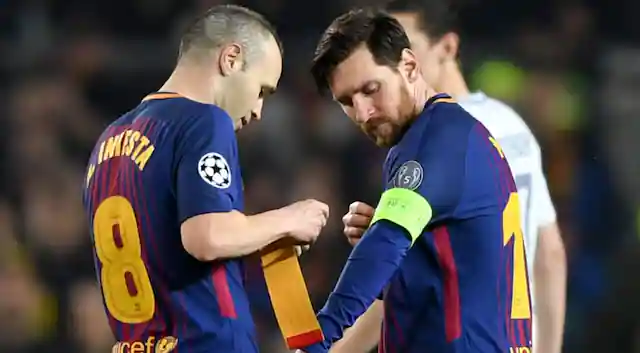

LATEST NEWS
